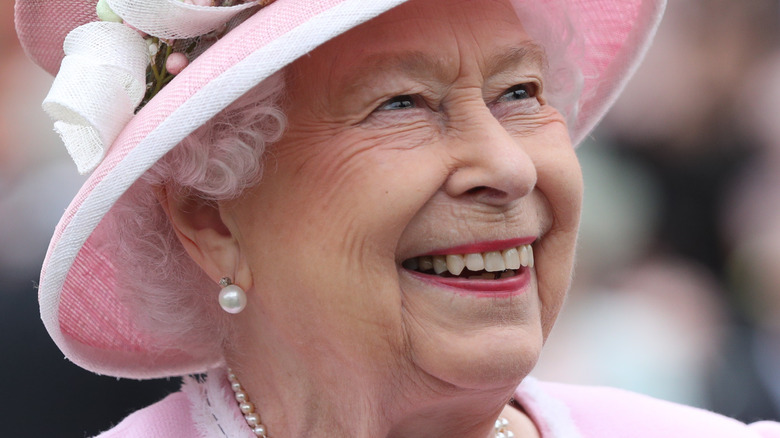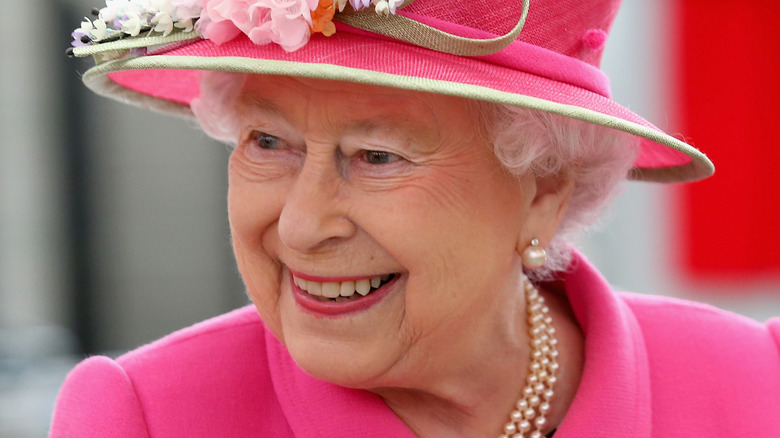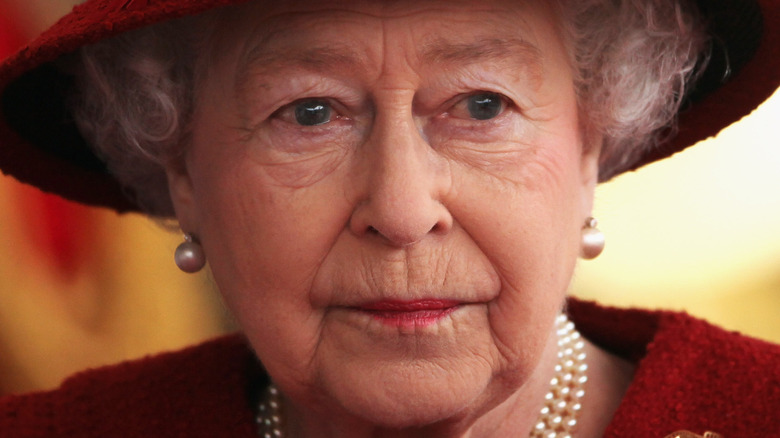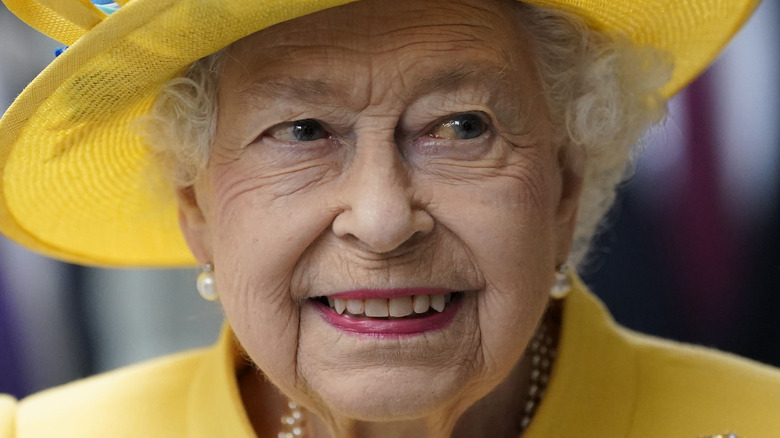Queen Elizabeth's Cause Of Death Confirms What We Suspected
Queen Elizabeth II died on September 8 at the age of 96, after 70 years on the throne. Queen Elizabeth II spent her final moments at Balmoral Castle in Scotland, a country that was very near in dear to her heart, per BBC News. The queen's death spurred widespread mourning from people all across the globe. Of course, her home country of England expressed their grief in the most momentous ways. According to PBS, thousands of people braved chilly temperatures and exposure to the elements to flock to Westminster Hall for the chance to pay their respects to the queen prior to her funeral.
In the immediate moments after Queen Elizabeth II's death, King Charles III extended the period of royal mourning past the eight days which are standard for national mourning. "Following the death of Her Majesty The Queen, it is His Majesty The King's wish that a period of Royal Mourning be observed from now until seven days after The Queen's Funeral," King Charles III said in a statement, per Newsweek. Given that the queen's funeral took place on September 19, the period of royal mourning ended on September 26.
Now, just over a week after Queen Elizabeth II's funeral and private burial, we now know her cause of death and it's exactly what we suspected.
Queen Elizabeth died of old age
Queen Elizabeth II's official cause of death has been revealed. On September 29, the National Records of Scotland made her death certificate public, which revealed that she died at 3:10 p.m. GMT from "old" age. Within the document, you see that the queen's daughter, Princess Anne signed the death certificate, via People.
In the month's leading up to Queen Elizabeth II's passing, she experienced a few concerning health issues. In June of this year, the queen was noticeably absent from key events during her Platinum Jubilee, which celebrated her 70th year on the throne. A statement made by Buckingham Palace to Harper's Bazaaar cited mobility issues on the queen's part. "Her Majesty enjoyed today immensely, but episodic mobility issues were experienced during the course of the day," read the statement in part. In February, the queen suffered from a bout of coronavirus that left her "very tired and exhausted," per BBC News.
In fact, according to Today, the late monarch's public presence was especially scarce during the spring.
Queen Elizabeth II experienced several health issues over the years
Queen Elizabeth II lived a very long life and also managed to overcome several health issues over the years. In February, nearly seven months prior to her death, she tested positive for COVID-19, according to NPR. Because Queen Elizabeth II was fully vaccinated, Buckingham Palace prepared for her to recover quickly. "She will continue to receive medical attention and will follow all the appropriate guidelines," the palace said in a statement obtained by the outlet.
Aside from dealing with coronavirus, Queen Elizabeth II has remained resilient after every health scare and almost always returned to work immediately. Back in 1994, doctors confirmed the monarch had suffered a broken wrist after falling off a horse. While Queen Elizabeth continued to stay rather healthy after the mid-'90s, in 2013 she was admitted to the hospital for showing signs of gastroenteritis, according to Us Weekly. It was also the first time in 20 years that she was absent from the annual Commonwealth Day Observance service, per the Independent.
And, in December 2016, NBC News reported that Queen Elizabeth and her husband Prince Philip came down with a brutal cold which resulted in them having to cancel holiday plans. "The queen and The Duke of Edinburgh have heavy colds, and so have decided not to travel to Sandringham today," a rep told the outlet. However, despite the queen's ongoing health issues, her family history indicated she would still live a long and prosperous life no matter what.
Queen Elizabeth II took after her mother
Queen Elizabeth II is the longest-reigning monarch in British history — and given the royal family tree, it's no surprise she lived up to the age of 96. In April 2021, the queen's husband, Prince Phillip, Duke of Edinburgh, died at the age of 99, just months before his 100th birthday, per BBC News. Queen Elizabeth II's mother, Queen Elizabeth the Queen Mother, was another example of longevity. She was born in 1900 and lived to 101 after peacefully dying in her sleep. "Queen Elizabeth the Queen Mother had become increasingly frail in recent weeks following her bad cough and chest infection over Christmas," Buckingham Palace said in a statement obtained by The Guardian after her death in 2002.
Although many are ultimately saddened by the death of Queen Elizabeth II, at least she was able to continue her family's legacy of longevity.




